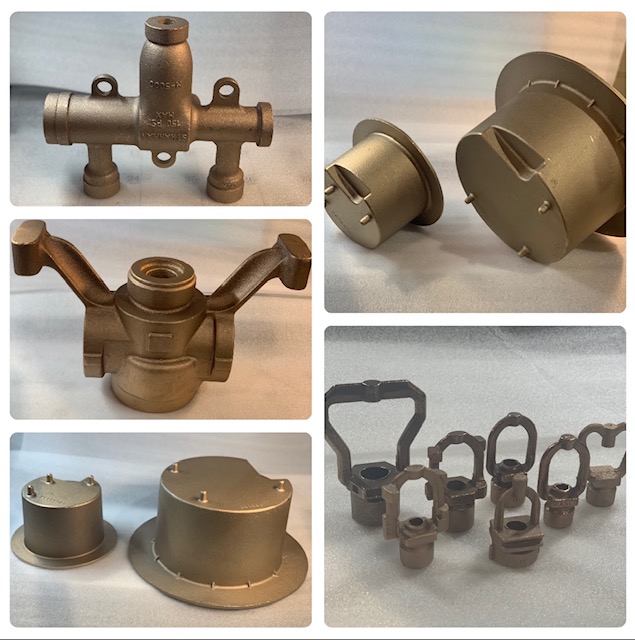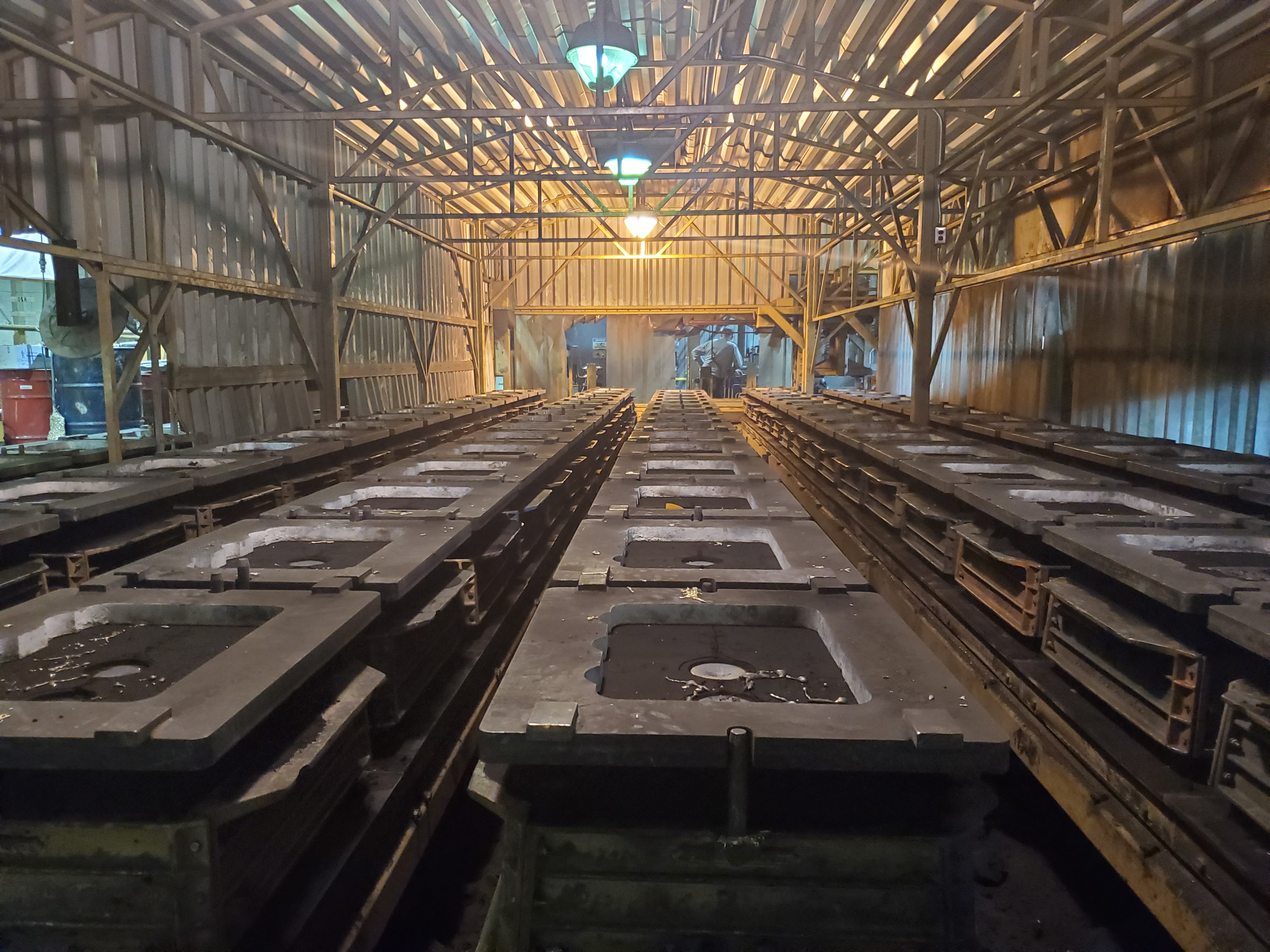Our Custom Brass Casting Foundry in Lancaster, PA
In the engineering of brass components for a new project, it's important to select the right metal alloy and casting method. Brass casting is a popular choice for a wide variety of applications due to the unique properties of brass and its casting process's cost-effective nature. At J. Walter Miller, we provide brass casting fabrication services in Pennsylvania. If you're looking for a foundry that can handle small and large orders quickly, we can meet your needs.
What Is Brass Casting?
Brass is a generic name that encompasses alloys made from copper and zinc. Brass alloy forging involves using these metal alloys to form metal parts efficiently from brass castings. Green sand casting is one of the most reliable brass casting methods.
This technique involves forming a single-use mold from a sand aggregate and pouring molten brass into that mold. The process works well thanks to green sand's ability to withstand extremely high temperatures.
Applications For Custom Brass Castings
Brass castings find use in many industries, and its components prove especially useful in household and construction applications due to the material's natural corrosion resistance. At J. Walter Miller, we have the casting capabilities to create brass connectors, switch gears, pump parts, valves, sprinkler heads and more. Industries that rely on brass casting fabrication services include:
- Fire protection
- Electrical components
- Flow Control
- Construction
- Plumbing
- Hardware
- Pneumatics
Foundry Equipment for Custom Brass Castings
Brass casting foundries utilize specialized brass casting equipment to produce high-quality results. This equipment includes specialized melting furnaces to heat the metal to the appropriate temperature and vibratory equipment to remove finished metal castings from their sand molds. We use automated casting equipment at every stage of the brass fabrication casting process to keep costs low and lead times as short as possible. Automation, along with quality brass casting supplies allows us to produce consistent parts free of defects.
Our Brass Casting Process
Our brass casting manufacturing process involves three primary steps:
- Mold-making: We start by making match plates for each component. The sand is then pressed around the match plate to create new halves of a casting mold. A pattern is a full-size prototype of the part being manufactured. For more detailed aspects of the component, patterns are used to create cavities inside the mold during the mold-making process. Next, we fasten the mold together, forming a casting flask in preparation for pouring.
- Pouring: Once we've created an accurate sand mold, we heat brass to an ideal casting temperature inside a furnace. The molten brass then flows into the mold gradually. After the pouring process, we leave the filled molds to cool below casting temperature and solidify.
- Removal: Finally, we remove the finished, cooled metal castings by breaking open the molds. Depending on the type of component being made, we also smooth the surface of the brass piece and remove extra metal if necessary.
Properties of Brass
Finished brass casting can provide benefits such as:
- Resistance to corrosion and rust
- High strength and wear-resistance
- A hygienic surface
- Good electrical conductivity
Our Brass Alloy Types
At J. Walter Miller, we work with several different bronze alloys. Four common brass casting alloys that we work with are as follows — C84400 Leaded Semi-Red Brass, C83600 Leaded Red Brass and two types of non-leaded red brass. Each alloy works best in specific applications. To learn more about our custom brass casting services in Pennsylvania, reach out to us today.




